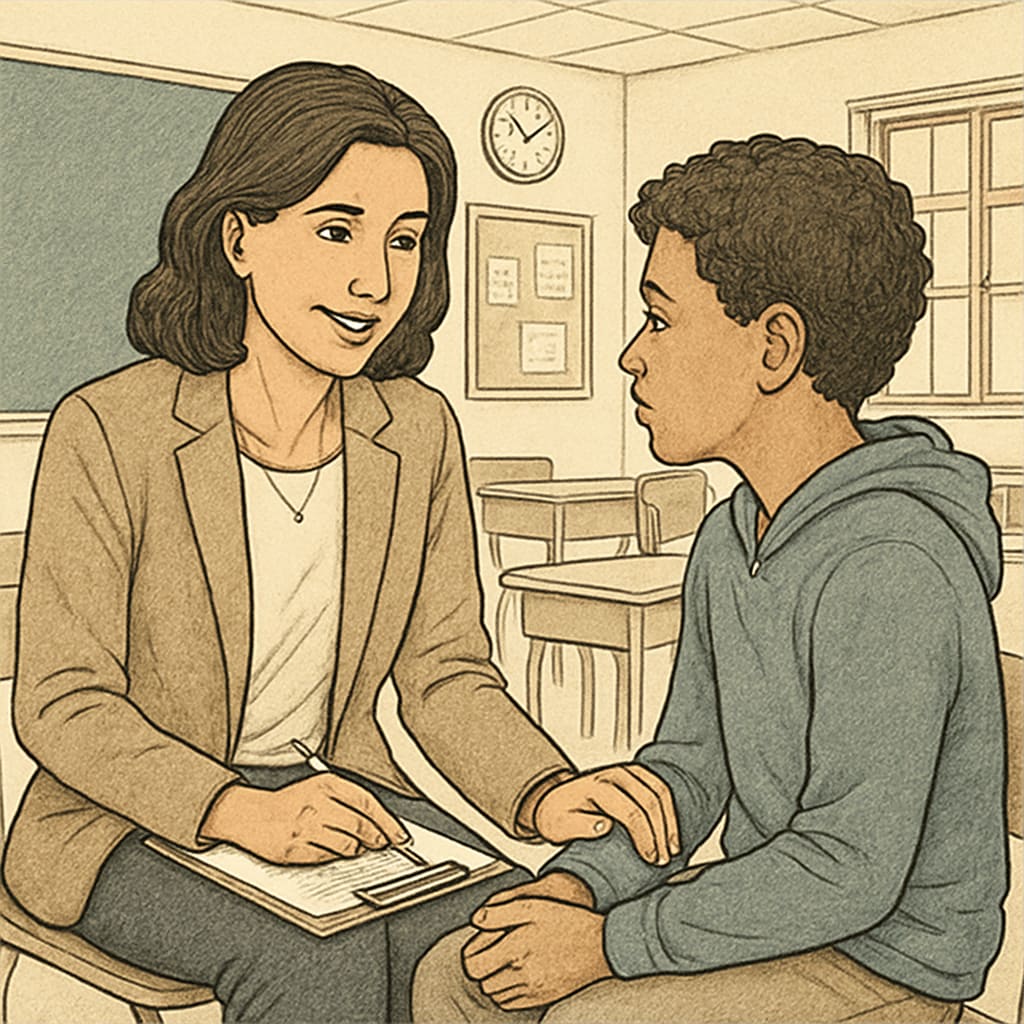Graduate-level research often requires students to engage with education professionals, including K-12 school counselors, to gather insights into their roles and practices. This article provides a step-by-step guide to help students locate and interview school counselors effectively for research assignments, ensuring both a productive experience and respect for the counselors’ responsibilities.

Understanding the Role of K-12 School Counselors
Before reaching out, it’s crucial to understand the scope of a school counselor’s work. Counselors in K-12 settings are responsible for guiding students academically, socially, and emotionally. Their expertise spans areas such as college readiness, mental health support, and conflict resolution. Familiarizing yourself with their roles not only helps frame your interview questions but also demonstrates respect for their profession.
For a comprehensive overview of school counseling, you can refer to well-documented resources such as the Britannica entry on school counseling.
Finding K-12 School Counselors to Interview
Locating school counselors can be challenging but achievable with the right approach. Here are some strategies:
- Contact Local Schools: Start by reaching out to schools in your district or community. Most schools have contact information for their counseling department listed on their website.
- Network Through Professors or Colleagues: Professors and classmates may have connections to local educators, which can simplify the outreach process.
- Professional Organizations: Explore organizations like the American School Counselor Association (ASCA) for directories or events that might connect you with professionals.
- Social Media and LinkedIn: Many counselors maintain profiles on professional platforms. Craft a polite introduction message explaining your research objectives.

Communicating Effectively with Counselors
When reaching out to counselors, it’s essential to communicate professionally and clearly. Here are some tips:
- Draft a Polite Outreach Email: Introduce yourself, explain your research project, and specify why their insights would be valuable. Keep your message concise and respectful of their time.
- Be Flexible with Scheduling: Offer multiple time slots and emphasize your willingness to work around their availability.
- Provide Context: Share an outline of your interview questions and the purpose of your research so they feel prepared.
Remember, school counselors often have busy schedules, so patience and understanding can go a long way in building a positive rapport.
Conducting a Professional and Insightful Interview
Once an interview is scheduled, preparation is key to ensuring a productive session. Follow these guidelines:
- Start with Open-Ended Questions: Encourage counselors to share their experiences and perspectives without feeling constrained by yes/no questions.
- Respect Confidentiality: Avoid asking for specific details about students or sensitive information that could breach ethics or privacy.
- Take Notes: Document key points during the discussion, but also consider asking for permission to record for accuracy.
- Show Gratitude: At the conclusion of the interview, express your appreciation for their time and insights.
Conducting interviews with K-12 school counselors not only enriches your research but also helps you better understand the critical role they play in student development. By following these strategies, graduate students can successfully connect with counselors and gain meaningful insights for their academic assignments.
Readability guidance: Use clear headings and concise paragraphs to maintain engagement. Incorporate lists to simplify complex points and ensure smooth transitions between sections for better flow.


